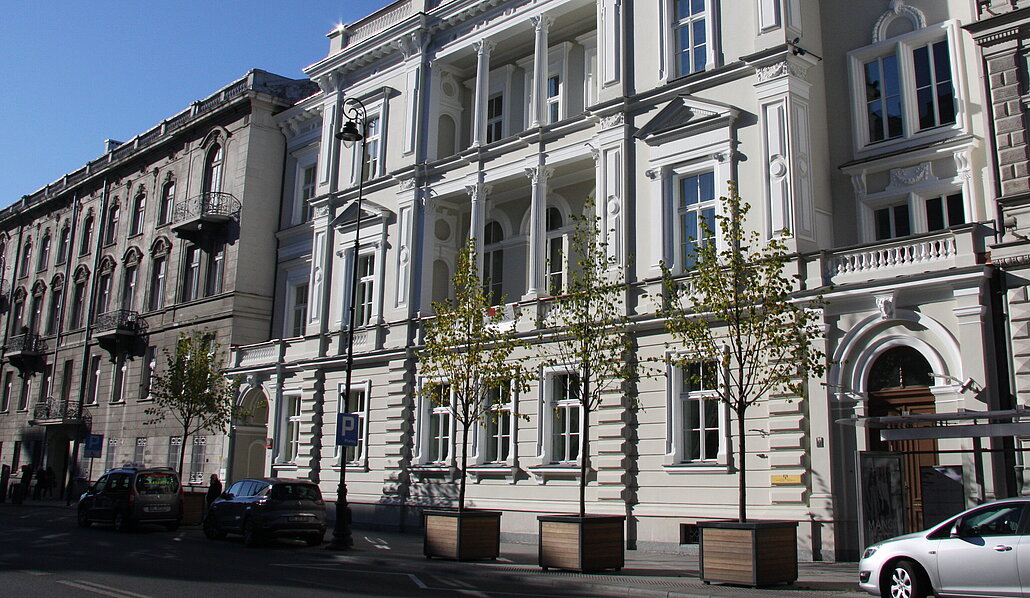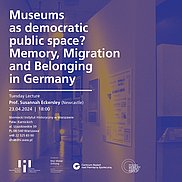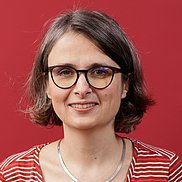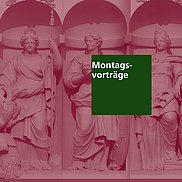Research often emphasizes the importance of socio-political factors in the development of memory cultures. However, the influence of infrastructural conditions on the shaping of social images of the past is not yet fully recognized. This can mean e.g. the structural and financial framework of a cultural production, but also technical or environmental factors. Furthermore, due to the accelerating processes of globalization, the development of local and national memory cultures cannot be considered apart from the broader European and global changes in the field. These are determined, among others by technological developments, structural changes in cultural institutions, (social) media and mass tourism, as well as by the policies of transnational memory agents, including the EU institutions, other trans-governmental organizations and international NGOs.
Within the panel we would like to present the conceptual and methodological frameworks of two collaborating, interdisciplinary research projects, both located at the intersection of Memory, Infrastructure and Museum Studies. The first project, titled "Infrastructures of Collective Memory. Actants of the globalization process and their impact on German and Polish cultures of memory" considers the development of the German and Polish cultures of remembrance in a broader international context. Its aim is to shed light on globally shaped networks and infrastructures that underlie the development of memory cultures in both countries. Doing so, it takes into account the role of human and non human actors, thus both social agents and material objects and conditions that influence cultural production. The project focuses on art and history exhibitions dedicated to the history and memory of World War II, the Holocaust and the forced migrations of the direct postwar years. The research is financed by the Deutsch Polnische Wissenschaftsstiftung (German Polish Academic Foundation) and realized by the University of Lodz and the German Historical Institute Warsaw The second project, called "Help delivered to Jews during World War II and Transnational Memory in the Making" asks how transnational memory is construed locally. Its aim is to identify the individuals and institutions driving this process and to describe their agendas and modes of action. Doing so it wants to capture the dialectic between the remembrance policy of the EU and other transnational memory agents and national or local institutions. As case studies it explores local and national narratives on those who aided Jews during the Holocaust and in particular their museum representations and assesses how they are influenced by international developments and vice versa. The project is funded by the Polish National Science Centre (NCN) and realized at the University of Warsaw. Both projects include also audience research to examine how the case study museums and exhibitions are perceived by local and international visitors.
As the two projects started only in autumn 2022, the panelists will not present their results. Rather they will discuss the aims, the initial assumptions, and the methodology of both projects, and illustrate them by case studies drawn from preliminary research conducted by the principal investigators. We hope that the subsequent discussion will inspire our further work.
Uczestnicy:
Magdalena Saryusz-Wolska, German Historical Institute Warsaw
Tomasz Załuski, University of Lodz
Katarzyna Anzorge, University of Lodz
Zofia Wóycicka, University of Warsaw
Michalina Musielak, University of Leipzig






